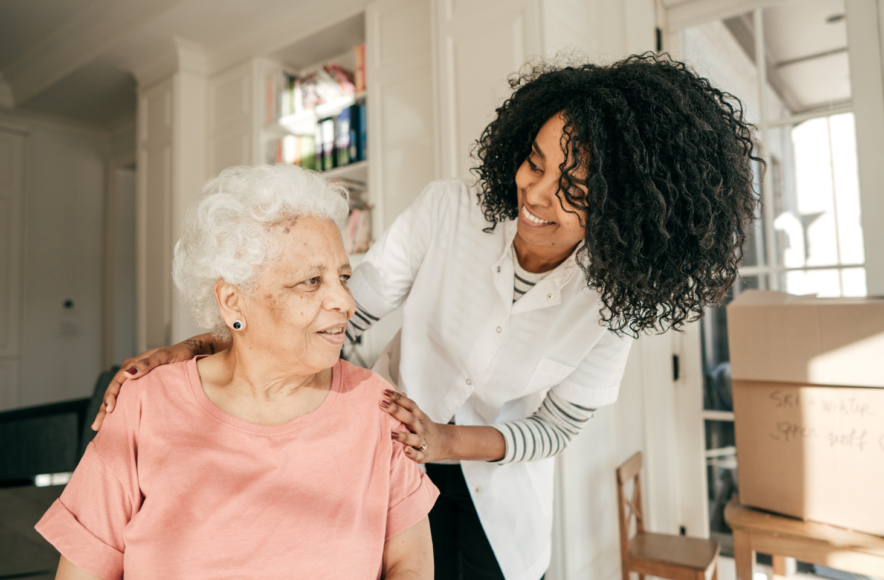Stroke – what are the signs and how is it treated?

What is stroke?
A stroke happens when the blood supply to part of the brain is cut off.
There are 2 main causes of strokes:
- ischaemic – this is the most common type, caused by a blood clot
- haemorrhagic – this is where a weakened blood vessel supplying the brain bursts
There’s also a related condition called a transient ischaemic attack (TIA).
This is known as a ‘mini-stroke’ and it is when the blood supply to the brain is temporarily interrupted for a few minutes or even up to 24 hours.
Strokes can lead to brain injury, disability and possibly death.
It’s really important that someone receives treatment quickly, as this can reduce the amount of damage that happens to the body.
What are the signs of a stroke?
The main symptoms of stroke can be remembered with the word FAST:
- Face – their face might have dropped on one side, the person may not be able to smile, or their mouth or eye may have dropped.
- Arms – the person might not be able to lift both arms and keep them there because of weakness or numbness in one of the arms.
- Speech – their speech may be slurred or garbled, or the person may not be able to talk at all despite appearing to be awake; they may also have problems understanding what you’re saying to them.
- Time – it’s time to dial 999 immediately if you see any of these signs or symptoms.
Other signs of stroke
The ‘FAST’ test helps to spot the most common symptoms of stroke, but there are other signs that you should always take seriously.
These include:
- Sudden weakness or numbness on one side of the body, including legs, hands or feet
- Difficulty finding words or speaking in clear sentences
- Sudden blurred vision or loss of sight in one or both eyes
- Sudden memory loss or confusion, and dizziness; or a sudden fall
- Sudden, severe headache
If you spot any of these signs of a stroke, don’t wait. Call 999 straight away.
Ambulance paramedics are trained in stroke, and will ensure the person receives emergency medical care and specialist treatment.
Who is more at risk of stroke?
There are certain risk factors for stroke that can’t be changed.
These include:
- Older age – for each decade of life after age 55, your chance of having a stroke more than doubles.
- Race – Black people have 1.5 to 2.5 times greater risk of having a stroke than White people. People from South Asian ethnic groups also have a 1.5 times increased risk of stroke compared to White people – particularly those from Pakistani and Bangladeshi groups. (Commission on Race and Ethnic Disparities 2021)
- Gender – stroke occurs more often in men, but more women than men die from stroke.
- Heredity or genetics – the chance of stroke is greater in people with a family history of it.
- History of prior stroke – you are at higher risk for having a second stroke after you have already had a stroke.
How can we reduce the risk of stroke?
There are several ways that we can support people to reduce some of their risk of stroke:
- Support people to receive an annual health check
- Encourage people to have a balanced diet that’s low in saturated fats, to drink alcohol within safe limits and to stop smoking
- Support people to be physically active and participate in activities they enjoy
- Support people to receive their prescribed medication
- Seek medical help if you are concerned about someone’s health
Stroke treatment and recovery
A stroke will initially be diagnosed by a brain scan, blood tests, swallow tests and heart and blood valve tests.
The specific treatments recommended depend on whether a stroke is ischaemic (caused by a blood clot) or haemorrhagic (caused by a burst blood vessel).
Some people recovering from a stroke will regain full independence whereas others may need ongoing support.
You can find more information about the different treatment and rehabilitation methods for stroke recovery on the NHS website.
The Stroke Association is the only charity dedicated to funding research into better rehabilitation for stroke survivors.
Find out more about their work and see their resources for professionals at: https://www.stroke.org.uk
- Alison Worsfold is Head of Healthcare at United Response.
Want a rewarding career?We’re recruiting across the country now. From support workers to area managers, take a look at the opportunities available in your area. Search United Response jobs